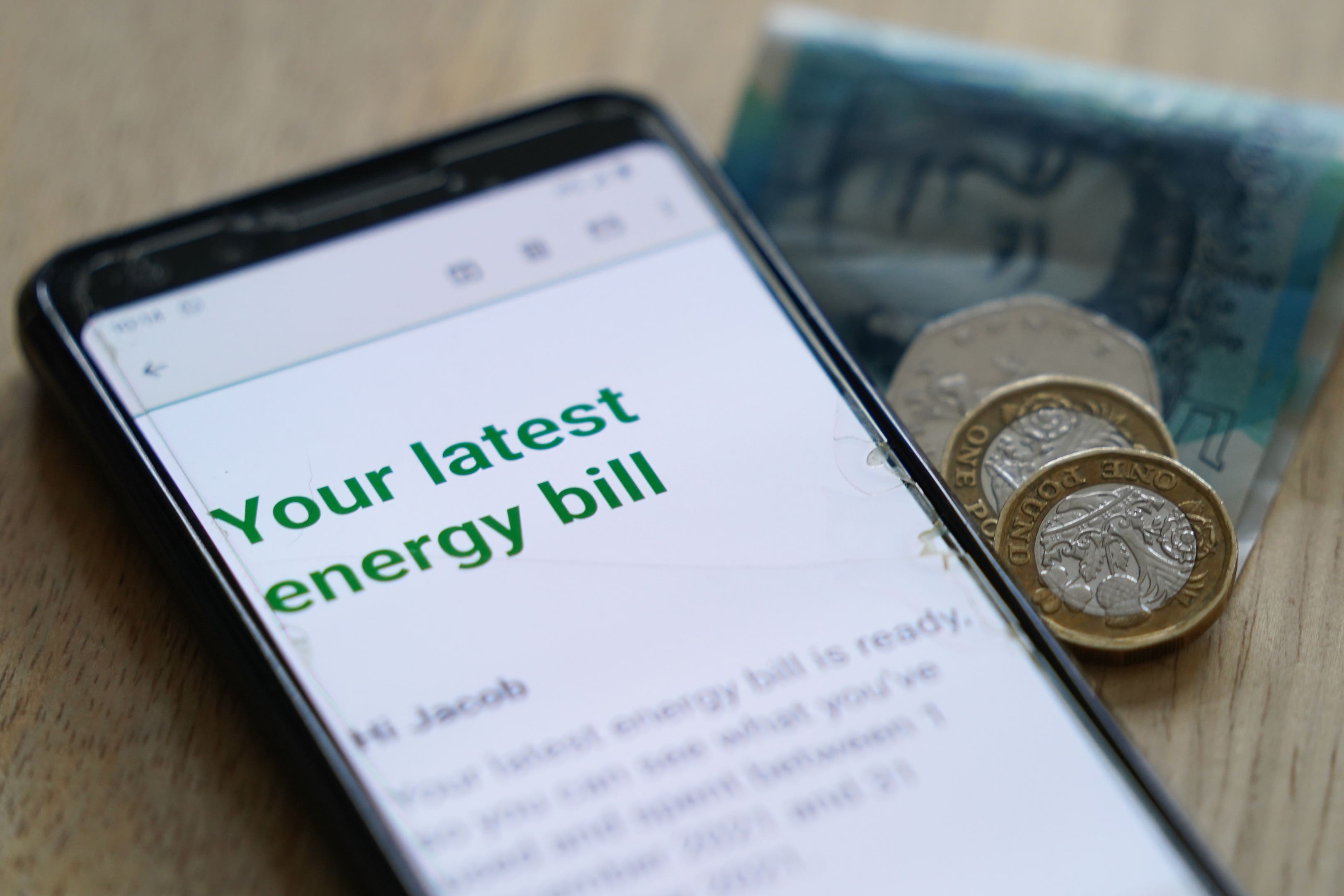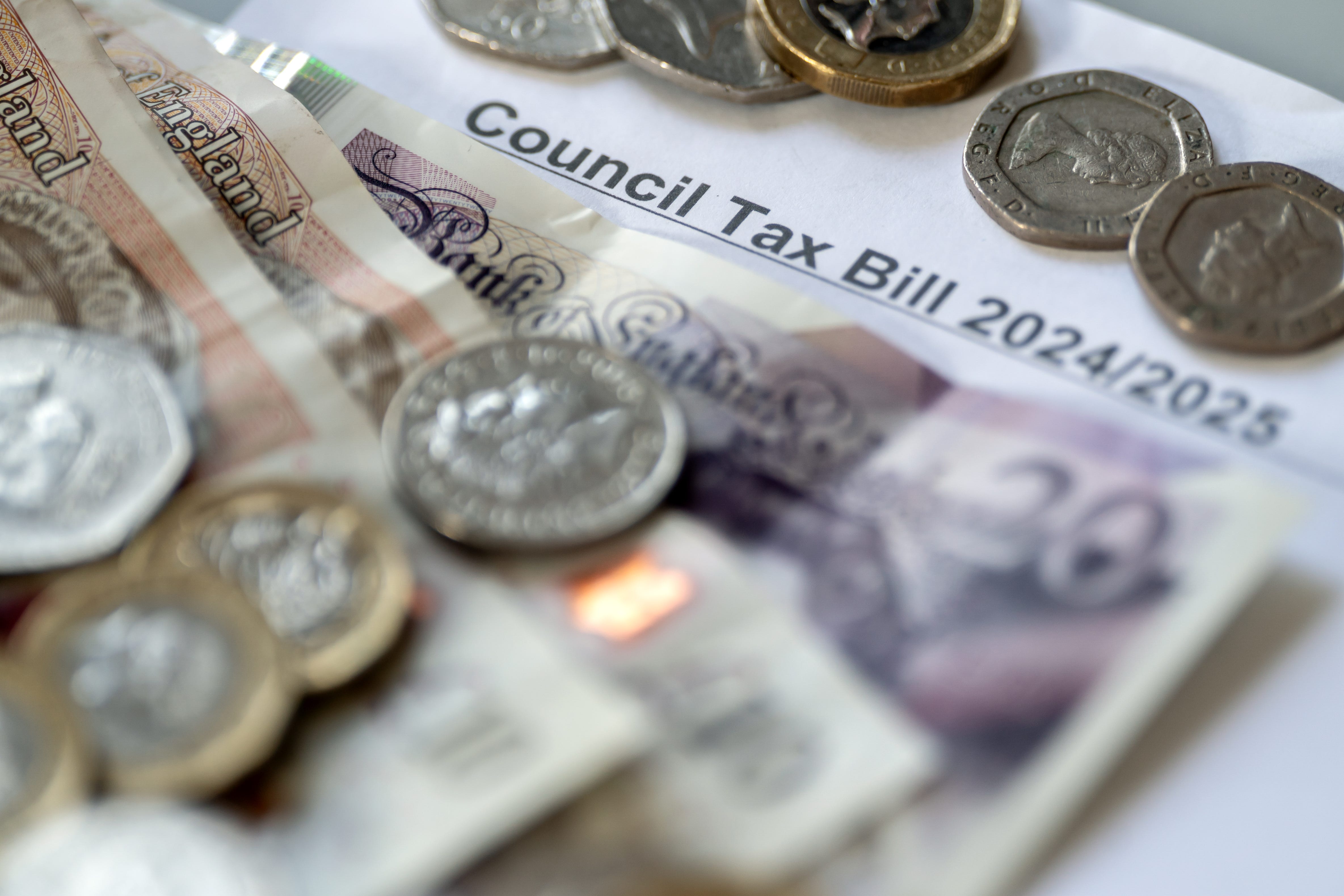The household bills rising today – from energy to council tax
April will be a tough month for struggling households this year

The average UK household can expect an increase in bills in everything from water charges to council tax from today, as 2025 looks set to be difficult year for personal finances.
A number of bills will rise from 1 April, including gas and electricity, council tax and water bills in what is likely to be a hard month for struggling households.
Increases to water bills and council tax will have the biggest impact in the month. And with some households shaping up to pay hundreds more, it’s important to know what to expect.
Here’s are the biggest bill rises coming in 2025:
Energy bills
From 1 April, the annual energy bill for a household using a typical amount of gas and electricity will go up £111 a year, or £9.25 a month, to £1,849.
Ofgem, which regulates how much suppliers can charge for each unit of energy, raised the price cap earlier this year by 6.4 per cent.

The cap is set every three months and affects 22 million homes in England, Wales and Scotland. Ofgem's chief executive Jonathan Brearley said the increase was “unwelcome”.
Households are urged to send an accurate meter reading to ensure that all energy they use before the higher prices come into effect is billed at the lower rate.
Ofgem has also advised that bill payers should consider switching to a fixed tariff, which works by locking in a set rate for gas and electricity for a specific period such as 12 months.
Water bills
Water bills are set to rise by £11 a month on average from April following regulator Ofwat’s price review, but this can vary depending on region and water company.
An annual Southern Water bill will jump 47 per cent to £703, for example, while Anglian Water customers will pay 19 per cent more.
This marks the first stage of a 36 per cent increase in bills over the next five years. Ofwat said the increase would pay for a £104 billion upgrade of the water sector to deliver “substantial, lasting, improvements for customers and the environment”.
Exactly how much a household water bill will rise varies from region to region. Southern Water customers will experience the biggest bill rise of all 11 water and wastewater companies. Wessex Water customers will see the lowest increase with a 21 per cent bill rise over the period.
Unlike gas and electricity suppliers, households cannot choose which company supplies their water, meaning they must either absorb the financial hit or consider ways to reduce their consumption.
Council tax
Another spiralling cost, council tax will rise by £108 on average in April after Labour confirmed bills will be allowed to rise by a maximum of 4.99 per cent.
This means that households will see rises of around two times higher than the current inflation rate. The increases could raise an additional £1.8bn for councils in 2025-26, communities minister Matthew Pennycook has said.
Technically, the cap has remained at 2.99 per cent in recent years, with an extra 2 per cent permitted for councils with social care responsibilities. This accounts for 152 out of 317 councils.

Many local authorities have opted to raise council tax by the full 4.99 per cent in 2025, as 95 per cent of eligible councils did last year.
Council tax is set by the value of a home. The average value home is in band D.
Sometimes, a property can be in the wrong band and so it might be worth requesting a revaluation. But households need to be aware that there is a risk it could be placed into a higher band rather than a lower one.
Many councils also offer support for struggling households, particularly those on lower incomes. One form this comes in is the Council Tax Reduction, which can reduce the amount to be paid by as much as 100 per cent.
Broadband and mobile
Some broadband customers will see rises in line with inflation this month, while others may face fixed hikes depending on when they signed up or upgraded.
For those on inflation-linked contracts, broadband prices will rise by an average of £21.99 annually, with some newer plans seeing increases of up to £42 a year, according to Uswitch.
Broadband customers should check their contract status to see if it is possible to switch without incurring a penalty. Switching to a new broadband deal after the initial contract has ended could save up to £180 a year.
Mobile users face similar increases, with an average increase of £15.90 for inflation-linked contracts, and up to £48 for newer deals.
Vodafone, Virgin Media and Community Fibre are some of the providers freezing prices until 2026 for those who switch before the April increases.
Mobile customers can text INFO to 85075 to check the status of their contract and any exit fees, or consider lowering their data plan to save money.
TV licence
TV licence fees will are also going up in line with inflation, meaning the cost of a standard colour TV licence will go up £5, increasing from the current £169.50 to £174.50.
You can claim a free TV licence if you are 75 or older and claim pension credit, or live with a partner who receives the benefit, by calling 0300 790 6071.
For the latest cost of living advice and personal finance tips as 2025 kicks off, visit The Independent’s regularly updated guide.
Join our commenting forum
Join thought-provoking conversations, follow other Independent readers and see their replies
0Comments